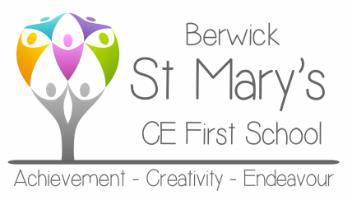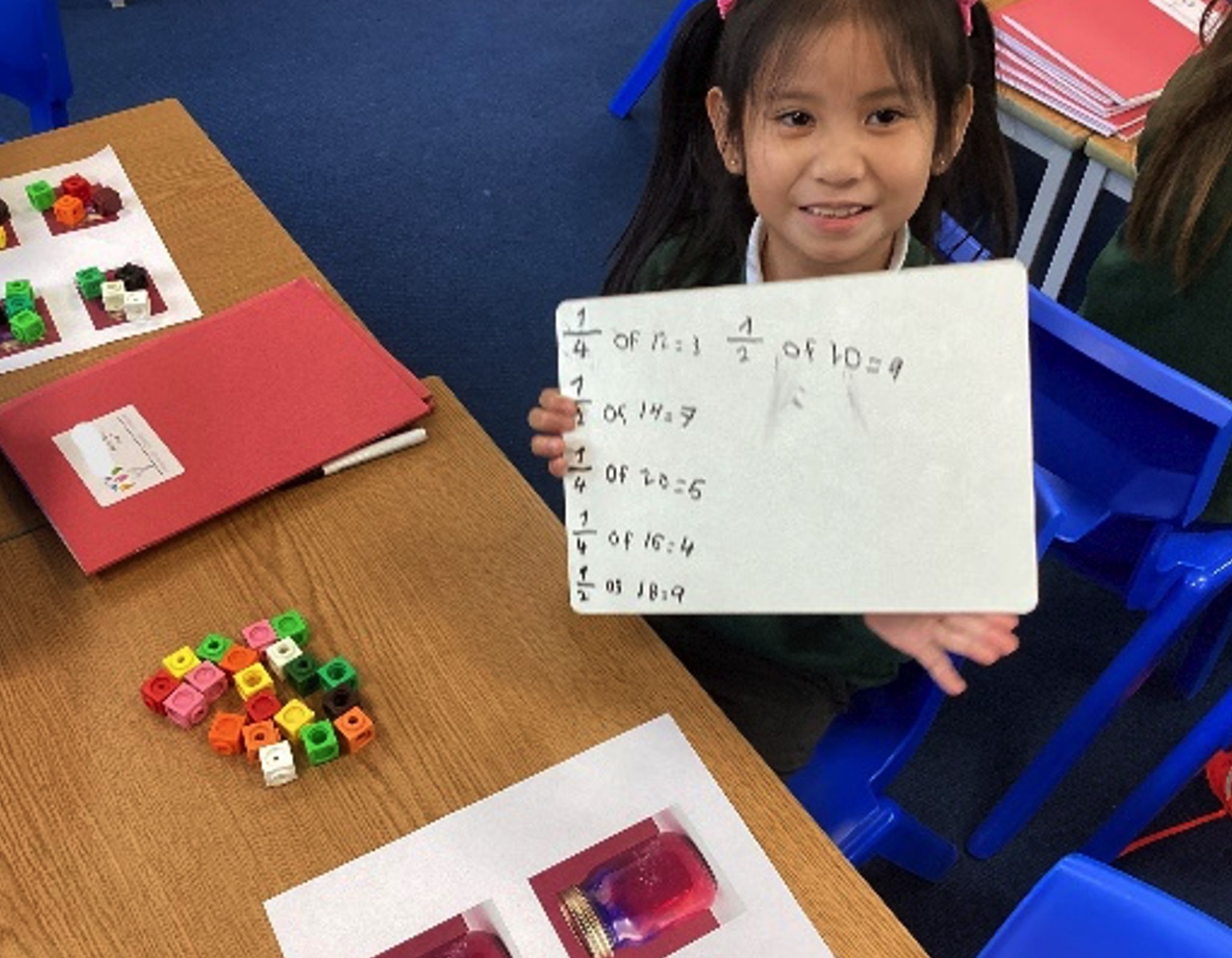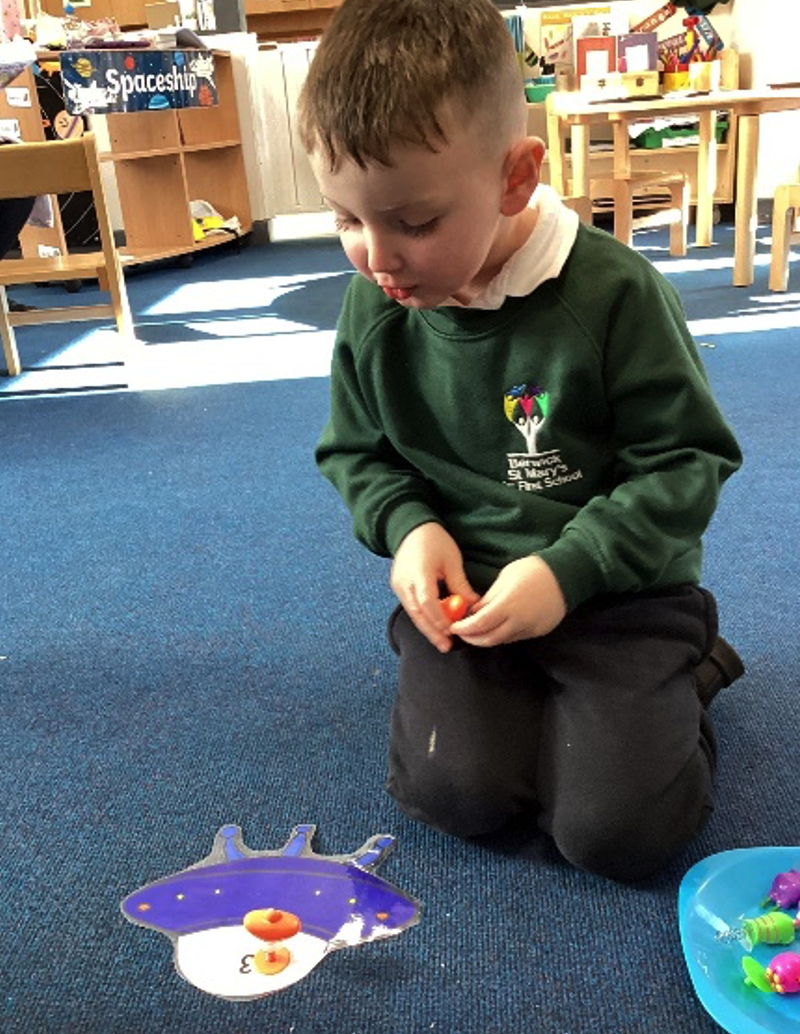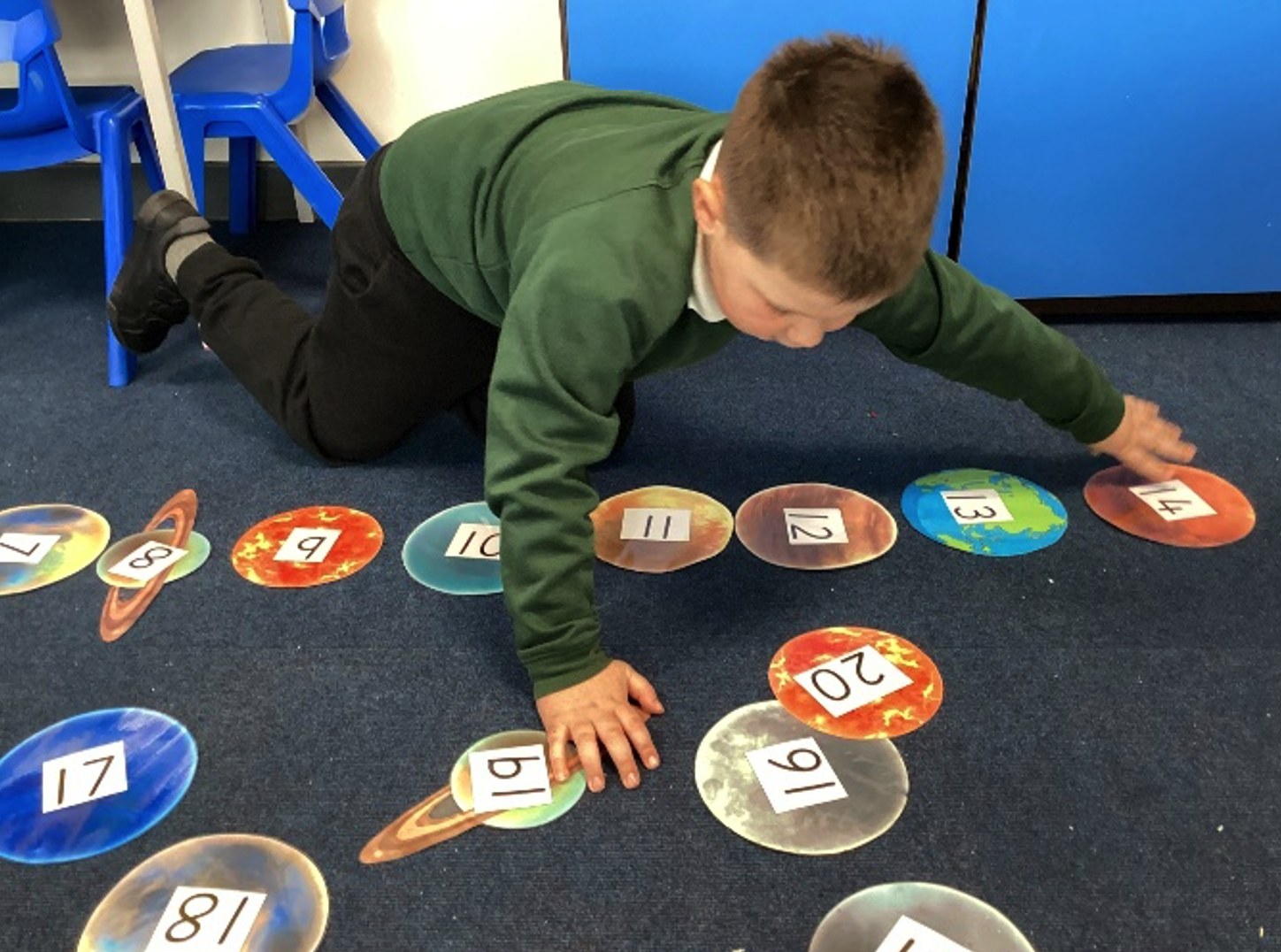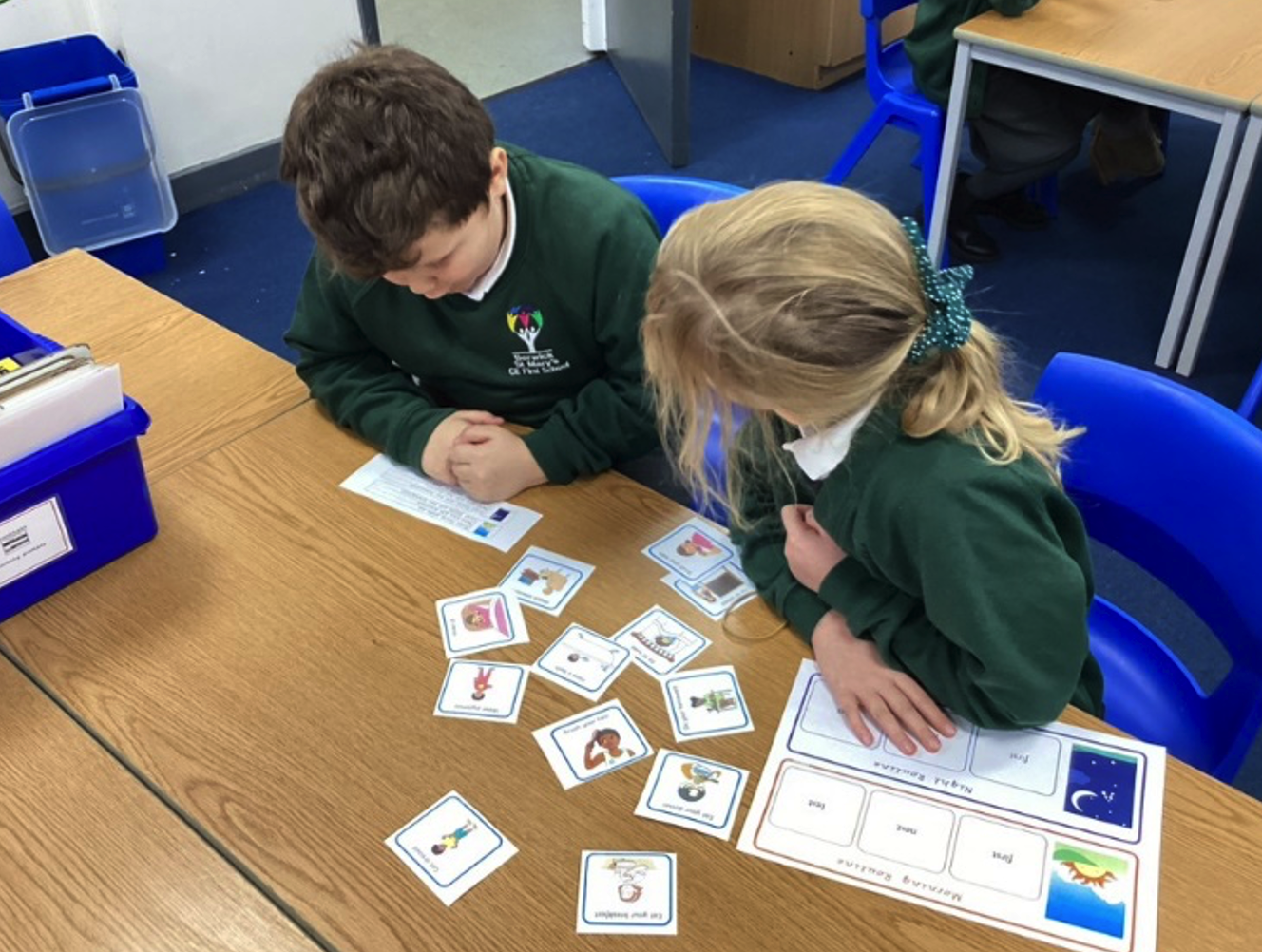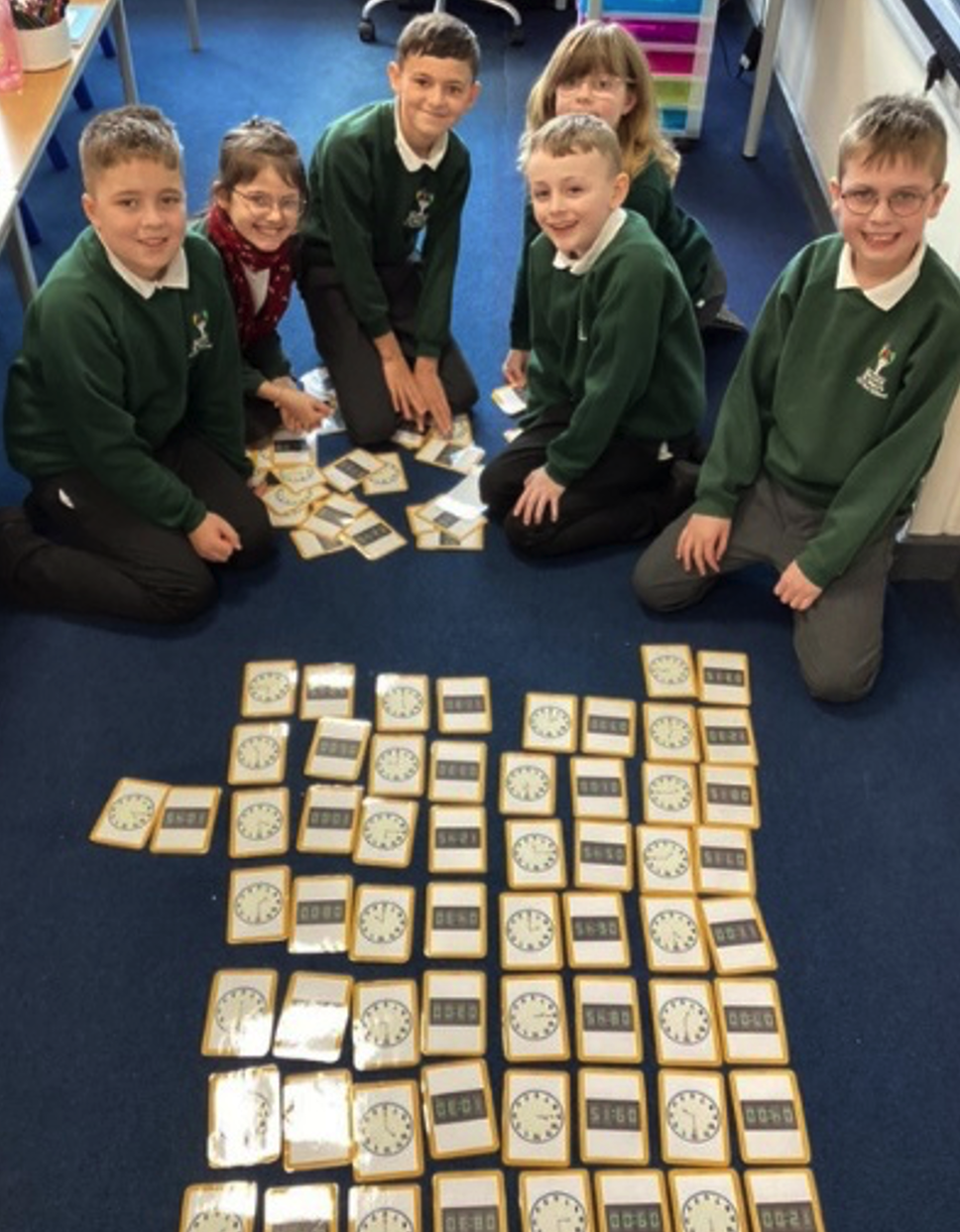‘Do not conform to the pattern of this world, but be transformed by the renewing of your mind.’
Romans 12:2
Our Maths lead is Miss Murray.
The National Curriculum for mathematics aims to ensure that all pupils become fluent in the fundamentals of mathematics, reason mathematically and can solve problems by applying their mathematics to a variety of situations.
At St Mary’s Maths is taught on a daily basis in two discreet elements, the first being a focus on the basic skills required by children to develop the application of numerical skills, (e.g. times tables, number bonds, etc). The second session is developing fluency and the application of numerical knowledge and other mathematical themes involving measures, shape, statistics and position and direction, with a focus on the contextual use of maths in everyday life.
We encourage the use of explorative learning to demonstrate the understanding of numerical skills, therefore children from Years 1-4 will be given the opportunity to learn through investigations, whereby they are provided the tools to explore a given task, and generate their own reasoned answer, (such as in the use of surveys, puzzles and other mathematical investigations).
Mathematic teaching is detailed in our half termly curriculum maps.
Click here to view the full National Curriculum Programme of Study that we follow for Mathematics in Key Stage 1 and 2.
At St Mary’s we aim to create independent and inquisitive mathematicians who recognise the importance of mathematics, integral to all aspects of life including science, technology and engineering, necessary for financial literacy and in employment.
The national curriculum for mathematics aims to ensure that all pupils:
- become fluent in the fundamentals of mathematics, including through varied and frequent practice with increasingly complex problems over time, so that pupils develop conceptual understanding and the ability to recall and apply knowledge rapidly and accurately.
- reason mathematically by following a line of enquiry, conjecturing relationships and generalisations, and developing an argument, justification or proof using mathematical language
- can solve problems by applying their mathematics to a variety of routine and non-routine problems with increasing sophistication, including breaking down problems into a series of simpler steps and persevering in seeking solutions.
Mastery in Maths
Through a mastery approach, our curriculum is planned in small sequential steps providing both breadth and depth to all learners maximising the learning potential of each pupil and securing a life long understanding. Opportunities are given for pupils to work practically in a range of contexts, progressing to pictorial representations and then to abstract concepts such as written calculation methods. Pupils develop rich connections across mathematical ideas to develop fluency, reasoning by following a line of enquiry and challenged through sophisticated problems, including the application and use of mathematics in real contexts e.g. scaling problems when working with ingredients in cooking.
The national curriculum for mathematics reflects the importance of spoken language in pupils’ development across the whole curriculum. At St Mary’s language development is a key priority enabling pupils to develop their mathematical vocabulary, expressing ideas accurately, concisely and in presenting mathematical thinking and justification.
Further opportunities are provided to enable pupils to apply their mathematical knowledge to science and the wider curriculum, e.g. interpreting data in Geography linked to climate change. Outdoor learning incorporates problem solving in a range of contexts including outdoor and adventurous activities.
We endeavour to ensure pupils develop a sense of enjoyment and natural curiosity about maths that will stay with them as they continue their learning journey into adulthood. Click on the classes below to see what Mathematics at St Mary’s looks like.
Early Years
We understand the importance of early experiences in maths and provide a range of mathematical experiences and opportunities for pupils to develop their skills in counting, understanding and using numbers, calculating simple addition and subtraction problems; and to describe shape, space and measure. This approach enables pupils to develop a strong grounding in number as a necessary building block for children to excel in the subject.
By the end of Reception, pupils should know how to recite numbers in order to 20 and beyond and know how to subitise (recognise quantities without counting) up to 5 in preparation for Year 1.
Insert link to view Mathematics, Development Matters that we follow for Mathematics in Early Years.
Key Stage 1
In Key Stage 1, the principal focus is to ensure that pupils develop confidence and mental fluency when working with whole numbers, including counting and place value of numbers with the 0-100 range. This will involve working with numerals, words, addition, subtraction, multiplication and division.
Pupils will develop their ability to recognise, describe, compare and sort shapes and use the related vocabulary. They will use a range of measures to describe and compare different quantities such as length, mass, capacity/volume, time and money as well as exploring position and direction.
By the end of Year 2, pupils show know number bonds to 20 to aid fluency as they move into Key Stage 2.
Key Stage 2
In Lower Key Stage 2, the principal focus is to ensure pupils become increasingly fluent with whole numbers and addition, subtraction, multiplication and division, including number facts and the concept of place value. Pupils will develop efficient mental and written calculation methods with increasingly larger whole numbers.
Pupils will develop their ability to reason mathematically and solve a range of problems. This includes fractions and decimal place value, analysing shapes and their properties and describing the relationships between them. They will use measuring implements with accuracy and make connections between measure and number.
By the end of Year 4, pupils should know up to and including the 12 times tables and demonstrate fluency and precision in their work.
